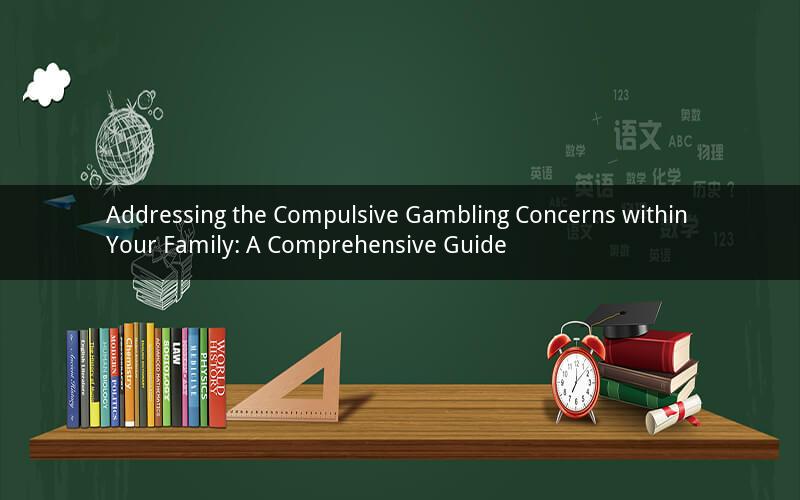
Introduction:
Confronting a family member about their gambling issue can be a challenging and emotional experience. However, addressing this problem promptly is crucial for their well-being and the harmony of the family. This article aims to provide a comprehensive guide on how to approach this delicate situation effectively.
1. Understanding the Problem:
Before initiating a conversation, it is essential to have a clear understanding of the gambling issue. Familiarize yourself with the signs and symptoms of compulsive gambling, such as secretive behavior, borrowing money, and neglecting responsibilities. Recognize that gambling addiction is a treatable condition, and it is crucial to approach the conversation with empathy and support.
2. Choose the Right Time and Place:
Selecting the appropriate time and place for the conversation is vital. Find a quiet and private setting where you can talk without interruptions. Ensure that both you and your family member are in a calm and relaxed state of mind. It is best to have this conversation when the person is not under the influence of alcohol or drugs.
3. Express Your Concerns Clearly:
When initiating the conversation, start by expressing your concerns about their gambling behavior. Use "I" statements to avoid sounding accusatory. For example, instead of saying, "You are a problem gambler," say, "I am worried about your gambling habits and how it is affecting our family." Be specific about the consequences you have observed, such as financial strain or strained relationships.
4. Listen Actively:
Once you have expressed your concerns, give your family member an opportunity to share their perspective. Listen actively, without interrupting or judging. Show empathy and understanding, as they may be defensive or ashamed. Encourage them to express their feelings and thoughts openly.
5. Avoid Blaming or Shaming:
It is crucial to avoid blaming or shaming your family member during this conversation. Understand that gambling addiction is a complex issue, and it is not a reflection of their character or values. Instead, focus on the behavior itself and its impact on the family.
6. Offer Support and Encouragement:
After expressing your concerns and listening to their perspective, offer your support and encouragement. Let them know that you are there to help them overcome this challenge. Suggest seeking professional help, such as counseling or joining a support group for gamblers. Encourage them to take small, manageable steps towards recovery.
7. Set Boundaries and Expectations:
Establish clear boundaries and expectations to ensure the well-being of the entire family. Discuss the consequences of continued gambling behavior and the steps that will be taken if the problem persists. It is important to maintain a supportive environment while also holding them accountable for their actions.
8. Seek Professional Help:
Encourage your family member to seek professional help from a therapist or counselor specializing in gambling addiction. They can provide personalized guidance, coping strategies, and support throughout the recovery process. As a family member, consider attending family therapy sessions to address any underlying issues and strengthen family bonds.
9. Be Patient and Understanding:
Recovery from gambling addiction is a long-term process. Be patient and understanding throughout this journey. Celebrate small victories and milestones, and offer ongoing support. Remember that relapses can occur, and it is essential to remain supportive and encouraging during these challenging times.
10. Strengthen Family Bonds:
As you navigate through this difficult period, focus on strengthening family bonds. Engage in activities that bring joy and create positive memories. Encourage open communication and create a safe space for everyone to express their feelings and concerns.
Questions and Answers:
1. Q: How can I approach my family member if I am worried about their gambling behavior?
A: Start by expressing your concerns using "I" statements and focusing on the behavior itself rather than their character. Choose a private and calm setting to have an open and honest conversation.
2. Q: Should I confront my family member about their gambling issue alone?
A: While it is possible to address the issue alone, involving a trusted friend or family member who can offer support during the conversation can be beneficial. They can provide additional perspectives and emotional support.
3. Q: What should I do if my family member becomes defensive or resistant during the conversation?
A: Remain calm and empathetic. Acknowledge their feelings and concerns. Offer support and encourage them to express themselves without judgment. If necessary, seek professional help to facilitate the conversation.
4. Q: How can I support my family member during their recovery process?
A: Offer ongoing support, celebrate milestones, and encourage them to seek professional help. Be patient and understanding, as recovery is a long-term process. Maintain open communication and provide a supportive environment.
5. Q: Can family therapy be helpful in addressing the gambling issue within the family?
A: Yes, family therapy can be highly beneficial. It allows family members to address underlying issues, improve communication, and develop coping strategies. It also provides a safe space for everyone to express their feelings and concerns.